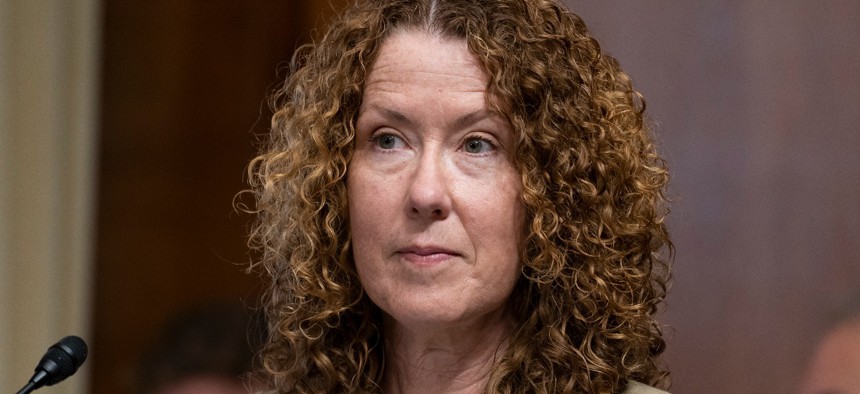Biden Administration Leaves Final Location of Interior Bureau an Open Question
The Trump administration moved the Bureau of Land Management headquarters to Colorado, a controversial decision that led to an exodus from the agency.
President Biden’s pick to lead the Bureau of Land Management would not commit to a location from which she would take on those responsibilities, saying during a confirmation hearing on Tuesday only that she would approach the issue of where to locate the bureau's headquarters with an open mind.
Tracy Stone-Manning, the BLM director-designate, pledged to members of the Senate Energy and Natural Resources Committee to listen to the needs of employees and the community of Grand Junction, Colorado, as the administration weighs the office’s fate. The Trump administration moved the headquarters out of Washington to Grand Junction, a highly contentious decision the Biden administration is now reconsidering.
“It’s my understanding that the [Interior] Department and the secretary are currently reviewing that, that they are surveying employees,” Stone-Manning told the committee. “If I have the honor of being confirmed and get there in a timely way, you have my commitment to dive in and carry the folks of Grand Junction and their concerns into my consideration.”
The Biden administration noted the review in its recently released fiscal 2022 budget proposal, saying it was looking at both the headquarters relocation and the larger reorganization which sent hundreds of positions out of D.C. and into western states. Ultimately, more than 80% of impacted employees rejected their mandatory relocations and either retired or found new jobs.
The Trump administration defended the move, which occurred in late 2019 through early 2020, by highlighting that nearly all of the land BLM manages is in Western states, suggesting it made sense for the decision-makers to be there too. Additionally, Trump administration officials said the move would lower lease payments, reduce travel costs and generate savings by paying employees smaller cost-of-living locality rates. Employees and other critics of the plan, however, noted that about 97% of BLM’s workforce was already located in the Western United States. BLM staff, Democrats on Capitol Hill and conservationists derided the move as a politically motivated opportunity to shed career experts and relocate the agency away from the halls of power.
BLM employees have told Government Executive that even some of those who accepted reassignments to Grand Junction are still looking for jobs in Washington and will return as soon as possible. In the run up to the relocations, workers said morale at the Washington office had plummeted, mistrust of leadership had grown and there was a feeling that the Trump administration was seeking to sideline important work. The Government Accountability Office blasted the Trump administration for the relocation process, saying it failed to take key steps to justify the move, including analyzing all associated costs, communicating with employees and assessing the workforce impact. BLM ultimately severely underestimated the number of employees who would refuse to move West, GAO said.
“Obviously it was done in haste and it didn’t pan out the way it was promised,” Sen. John Hickenlooper, D-Colo., said on Tuesday. Former Sen. Cory Gardner, R-Colo., who Hickenlooper unseated last year, played a key role in driving the original relocation decision. Hickenlooper implored Stone-Manning to consider both the relocated employees “who are in the balance” and Grand Junction residents.
The Biden administration said its ongoing review is focused on “understanding what impacts the reorganization has had on BLM operations and employees, assessing the impact of the significant loss of experience, and identifying needed actions to improve bureau capacity.” It vowed to engage with employees and other stakeholders to determine the fate of the headquarters and how to best coordinate its efforts in Western states and its obligations to lawmakers and others in Washington.
Stone-Manning received unanimous praise from Democrats, but at least some Republicans appeared unlikely to vote for her confirmation. Sen. John Barrasso, R-Wyo., the top Republican on the committee, highlighted several issues he had with the nominee, noting the “most troubling” of which was her “unvarnished political partisanship.” He and others pointed to attacks an environmental group, on whose board she sat, launched against Republicans, though Stone-Manning said she was not actively involved in the organization and said she had broad experience working with across party lines.




